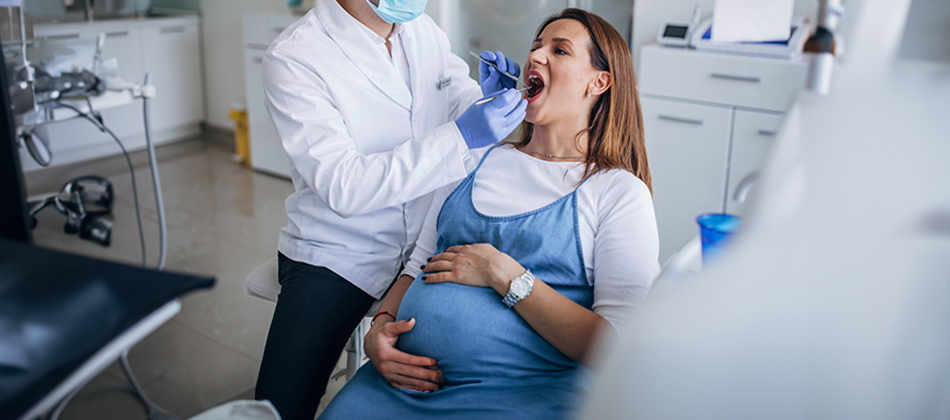Oral and Dental Health During Pregnancy
An aesthetic smile is the expression of power;
the smile is the sharp sword of this power.

The pregnancy period is very important for the health of the mother and baby. Oral and dental health is also closely related to general health. Hormonal changes during pregnancy can have various effects on the body, causing sensitivity, infection and other problems in teeth and gums. Therefore, protecting oral and dental health during pregnancy is very important for both mother and baby.
Oral and dental health problems that are frequently seen during pregnancy include tooth decay, gum diseases, mouth sores, tooth sensitivity, and increased or decreased salivation. Gum diseases may be more common in later stages of pregnancy.
The following steps are recommended to protect oral and dental health during pregnancy:
When dental treatment is required during pregnancy, the dentist prefers to perform these treatments in the 2nd trimester of pregnancy. During this period, the baby has completed its development and treatment risks are lower. However, in an emergency or when an advanced dental health problem requires treatment, doctors can perform these treatments at any time during pregnancy.
There are many products to protect oral and dental health during pregnancy. These include products such as fluoride toothpastes, antibacterial mouthwashes and dental floss.
Fluoride toothpastes help strengthen tooth enamel and prevent tooth decay. However, the amount of fluoride used during pregnancy is also important. Excessive use of fluoride may affect the baby’s bone development. For this reason, toothpastes to be used during pregnancy must have the fluoride level recommended by the physician.
Antibacterial mouthwashes also help protect oral and dental health along with tooth brushing and flossing. However, some mouthwashes should not be used in pregnant women due to their high alcohol content. For this reason, it is recommended that pregnant women consult their physicians about mouthwashes they can use.
Using dental floss also helps clean plaque and food debris between the teeth. This helps prevent tooth decay and gum disease.
Additionally, since saliva production increases during pregnancy, drinking water frequently and rinsing your teeth with water before brushing also helps protect your teeth.
In summary, precautions such as brushing teeth, using dental floss, using fluoride toothpaste and using appropriate mouthwashes should be taken to protect oral and dental health during pregnancy. However, it is extremely important to use the products used during pregnancy in the correct proportions and in accordance with the doctor’s recommendations.
